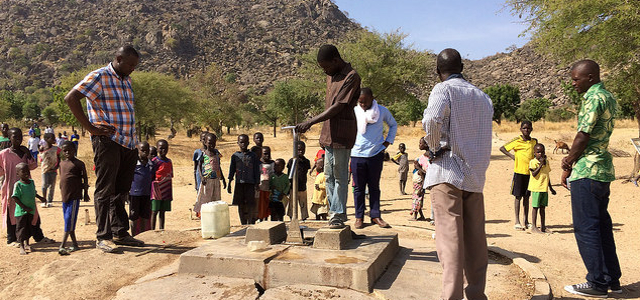GWP and UNICEF launch website on WASH climate resilience
- March 9, 2018
- Posted by: administrator
- Category: Environmental, Global

The Global Water Partnership (GWP) and UNICEF have developed a Strategic Framework to provide WASH service delivery that is resilient to climate change.
The Partnership is a global action network with over 3,000 Partner organisations in 183 countries. The network, which has 86 Country Water Partnerships and 13 Regional Water Partnerships, is open to all organisations involved in water resources management.
GWP continues to engage on WASH climate resilience through its collaboration with UNICEF. A Strategic Framework was developed to provide WASH service delivery that is resilient to climate change, and a series of technical briefs and learning modules support the implementation of the Framework. All the materials are now available on a new website.
José Gesti Canuto, Water and Environment Specialist with UNICEF, said that the materials developed are a direct response to requests coming from the field.
The Technical Briefs and Learning Modules, published in 2017, build a knowledge base for capacity building to support the implementation of the Framework at national, sub-national, basin, and local level. GWP said good progress has been made on the development of new agreements at both the regional and country level.
At the regional level, the methodology developed for risk assessment was piloted in 11 countries of West and Central Africa. The methodology mapped the main climate-related risks to WASH and built a roadmap for action per country, considering the country landscape in terms of ongoing activities, existing climate-related risks to WASH, funding opportunities, and key partners and initiatives.
An example at country level, is the work currently being carried out by GWP Cameroon and UNICEF Cameroon on improving the resilience of WASH services in the Mayo Tsanaga catchment through pilot initiatives in schools and health centres. The catchment is located in the Sahel, a region highly vulnerable to the impacts of climate change.
So far, important work has been initiated in targeting the excess fluoride in groundwater, a problem impacting the communities, in particular children living in the area.
